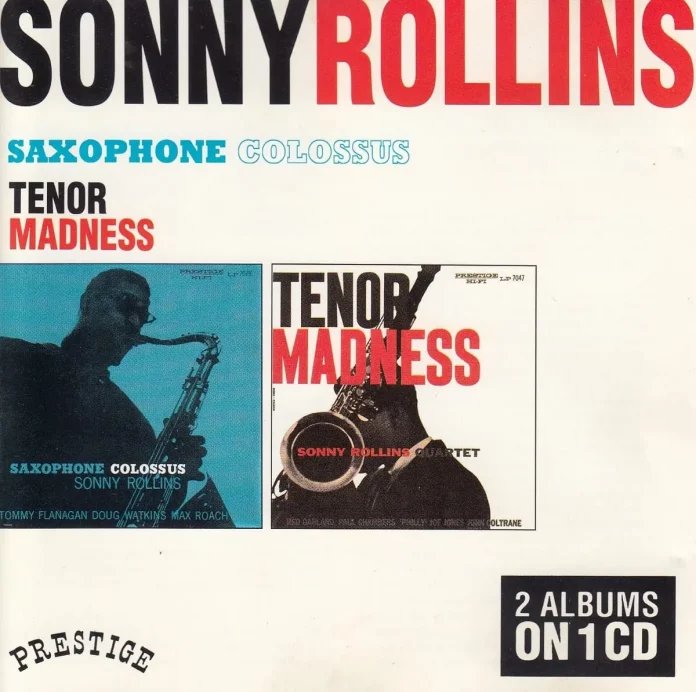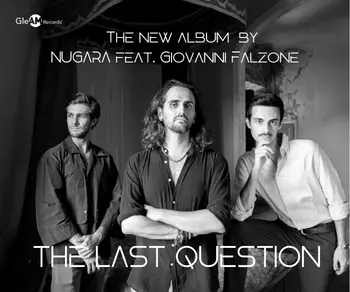This is the kind of value that many CD consumers have long agitated for – the coupling of two closely related LPs on one CD. In this case the amalgamation results in a playing time which must be near the optimum, and there is no question of space being filled with makeweight material. For CD-toting Rollins followers this will be considered an essential purchase.
With the exception of Tenor Madness, where Coltrane’s brisk modernism adds a quite different dynamic, Rollins’s playing here has a curiously anachronistic, pre-modern quality. Plainly he had a solid grasp of bebop, but in his hands its urgency and heat is moderated by a lyrical, songlike sensibility. Furthermore, his repertoire is big on sedate crotchet-based melodies, and his improvisations sustain that kind of velocity and style, the phrasing generally slow, suave and debonair, the line never straying far from the harmony, the inventions full of carefully contrived motivic developments.
And where Coltrane does not mask his seriousness, Rollins often invokes various comic devices, perhaps in response to some sense of musical inadequacy. Then, the gait becomes quaint and quirky, the rhythms contorted with a flippant, childlike sense of humour. When this happens, it’s not hard to visualise Rollins in the role of jaundiced function bandleader, subverting the standards to relieve the tedium of a routine society engagement. Certainly, for example, his improvisation on You Don’t Know seems shallow and unengaged, trivialising rather than ennobling its theme.
It’s all executed with considerable skill and very rarely does Rollins appear to rely on formulas, as Coltrane might have done in his more arithmetical moments. He improvises at all times, keeping the music fresh and inchoate. However, as his encounter with Trane shows, he was no radical, and for all their charm these celebrated sessions do underline his conservatism.
Discography
(a) Tenor Madness*; When Your Lover Has Gone; Paul’s Pal; My Reverie; The Most Beautiful Girl In The World; (b) St Thomas; You Don’t Know What Love Is; Strode Rode; Moritat; Blue Seven (75.79)
(a) Sonny Rollins (ts); Red Garland (p); ‘Philly’ Joe Jones (d); Paul Chambers (b). *Add John Coltrane. New Jersey, May 24, 1956.
(b) Rollins (ts); Tommy Flanagan (p); Max Roach (d); Doug Watkins (b). NJ, June 22, 1956.
(Prestige CDJZD 002)




